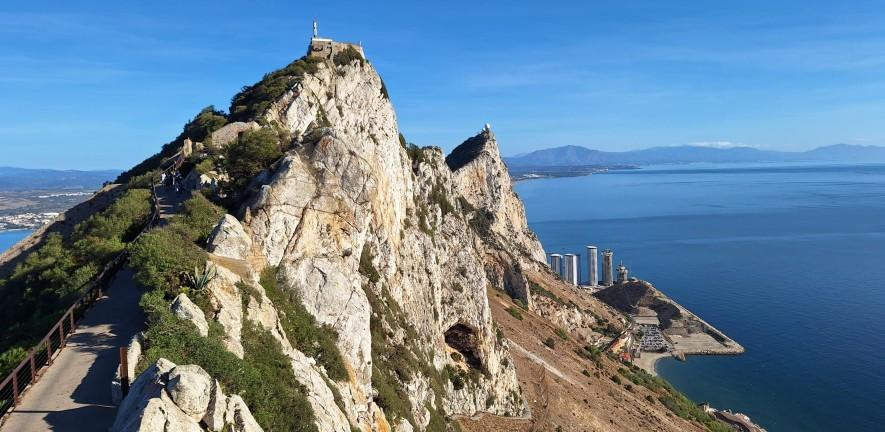
Submitted by Jane Durkin on Wed, 04/10/2023 - 12:23
The Gibraltar Literature Symposium on ‘Llanito, culture and writing’ brought together Gibraltarian writers and international academics to consider Gibraltar’s endangered Llanito language and what it means for Gibraltarian identity.
The event was organised in collaboration with Gibraltar’s Ministry for Culture, and co-sponsored by Cambridge Language Sciences, an Impact Acceleration Award and the English Faculty Research Support Fund. It took place at the University of Cambridge Faculty of English on 12 and 13 September.
The symposium was convened by Laura Wright, Professor of English Language at Cambridge University.
Laura is a historical sociolinguist whose latest research involves the study and preservation of Llanito, Gibraltar’s unique national Hispanic language.
With team-members Professor Ioanna Sitaridou, Professor Brechtje Post and Professor Linda Fisher of Cambridge Language Sciences, the Gibraltar Llanito Project team are considering initiatives to help save the endangered Llanito language of Gibraltar from dying out.
Initiatives include studying the language to describe its syntax, morphology, phonetics, phonology, prosody and intonation. They will also study Western Andalusian dialects across the border.
Linda Fisher, Professor of Languages Education, will work on 'understanding mindsets and shifting them through interventions'. That is, tracking what it takes to turn a country's attitude around so that it values its mother-tongue instead of depreciating it.
The following Llanito Manifesto was drafted by Dr Jamie Trinidad, Director of Studies in Law at Wolfson College, and signed by attendees at the event:
1. Llanito is dying. Intergenerational transmission of the language has reduced dramatically in recent decades, and it will soon be lost completely unless urgent action is taken to save it.
2. There is strong evidence that Gibraltarians cherish their centuries-long multilingual heritage and regard its loss as a tragedy, betraying future Gibraltarians’ linguistic birthright.
3. The state of Llanito must be officially investigated, and the fight to keep Gibraltar's multilingual heritage alive treated as a matter of urgent national importance.
4. Grassroots initiatives will not suffice. Strong and decisive top-down government action is required to ensure the survival of Llanito. Educational policies must be designed to ensure that preschool and primary-school children are able to speak Gibraltar’s unique national variety of Spanish as well as English. If children do not speak Llanito to each other, they cannot pass it on to their children.
Image: the Rock of Gibraltar. Photo by Davina Barbara, Gibraltarian cultural development officer and former broadcast journalist.
